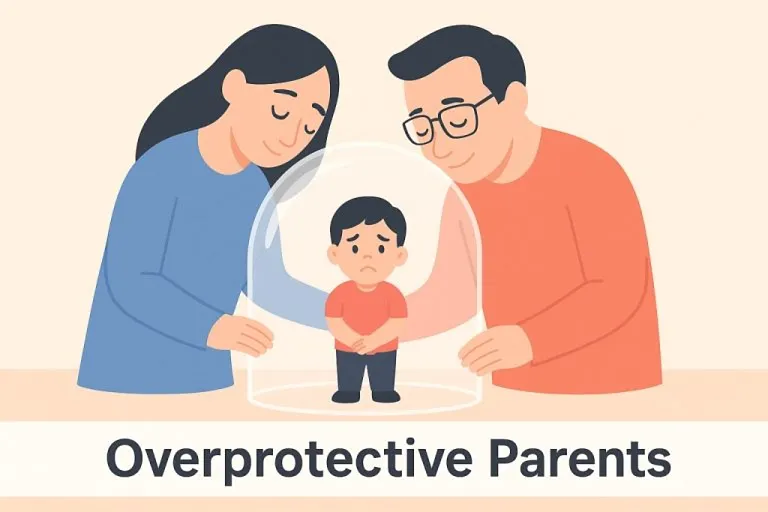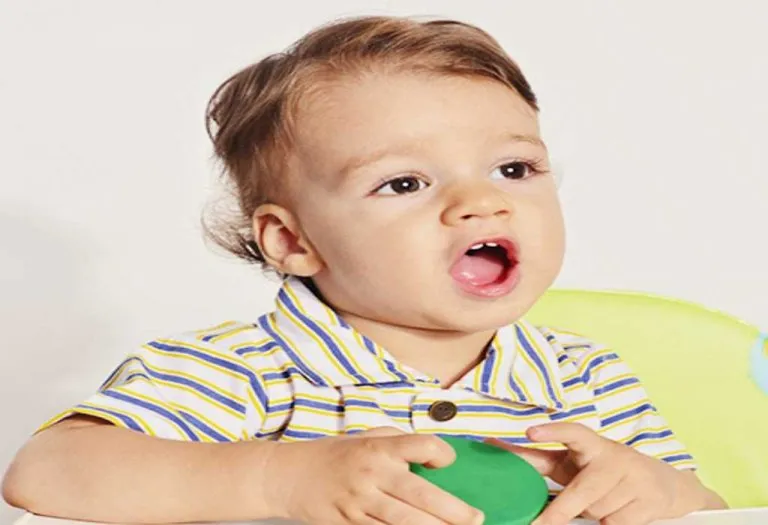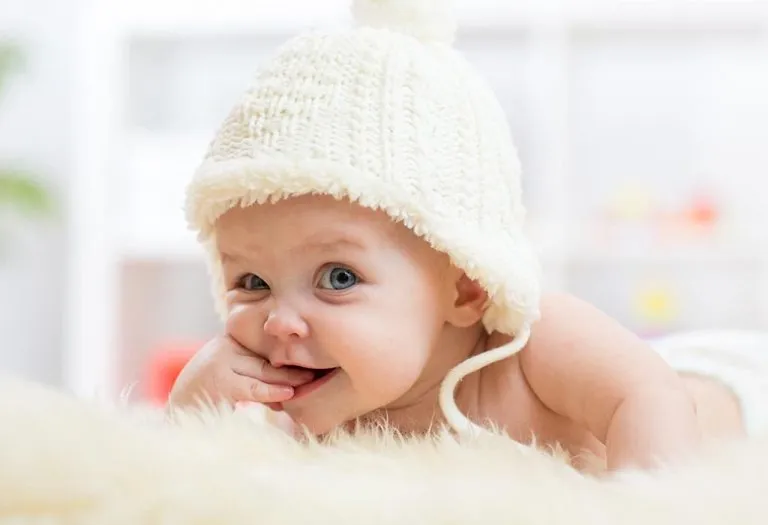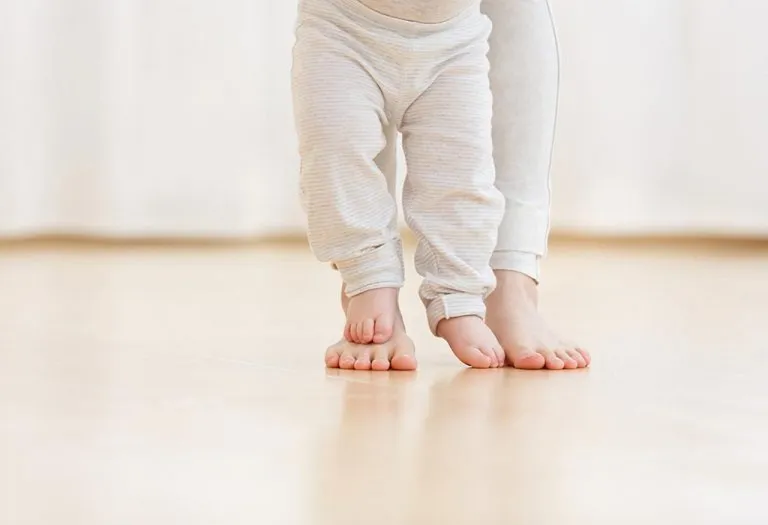Overprotective Parents – Signs, Effects & How to Avoid It
Am I an overprotective parent? Have you asked yourself that question, fearing what the answer will be? If you have, chances are you might be one. While being overprotective does reflect your love, it can also have the opposite effect. Many parents, especially mothers, struggle with finding the right balance—mother’s overprotective tendencies often stem from deep care but can hinder a child’s growth.
Overprotective parents sometimes think they’re doing their children a favour by rearing them with a firm hand and a protective shield. The truth, however, is that this can have unhealthy consequences. Children raised with excessive control may struggle with decision-making or self-confidence later in life. The damage caused by overprotective parenting can be far-reaching if not realised soon enough!
What Are Overprotective Parents?
Overprotective parents are those who excessively shield their children from challenges, risks, or negative experiences, often due to fear, anxiety, or an intense desire to keep them safe. While their intentions may come from love, their behaviour—such as constant supervision, making all decisions for their child, or preventing them from facing failures—can hinder emotional growth, independence, and resilience. A mother’s overprotective nature, in particular, may stem from deep care but can unintentionally foster dependence, anxiety, or difficulty in coping with real-world challenges later in life. Balancing protection with healthy freedom is key to raising confident, self-sufficient children.
Why Parents Are Overprotective
While wanting to keep kids safe is natural, excessive protection may prevent them from developing essential life skills. Below are some key reasons why parents adopt an approach of overbearing parenting.
1. Fear of Harm or Danger
Many parents overprotect because they constantly worry about their child’s safety—whether from physical injuries, bullying, or external threats. Media coverage of accidents and crimes can amplify these fears, making parents overly cautious.
2. Personal Past Experiences
If a parent faced hardships, trauma, or a lack of protection in their own childhood, they may overcompensate by being excessively shielding. A mother’s overprotective behaviour, for example, could stem from her own unresolved fears.
3. High Anxiety or Perfectionism
Some parents struggle with anxiety and project their worries onto their children. Perfectionist tendencies may also drive them to control every aspect of their child’s life to avoid mistakes or failures.
4. Social Pressure and Comparisons
Seeing other parents being highly cautious or hearing judgmental comments can push parents to adopt overprotective habits. They may fear being seen as negligent if they don’t intervene in every situation.
5. Guilt or Overcompensation
Working parents or those who feel they don’t spend enough time with their children may become overprotective to “make up” for their absence. This can lead to excessive pampering or reluctance to let the child face challenges.
Signs of Overprotective Parents
Recognising the signs of an overprotective parenting style is the first step toward finding a healthier balance. Here are some common behaviours that may indicate overprotectiveness:
1. You Guard Them Against Life’s Situations
Children who constantly live under their parent’s shield can never learn to face life’s challenges. They’re so used to mum and dad taking care of everything for them that they always look to their parents for answers. Parents, meanwhile, fail to realise that they’re not going to be by their children’s side forever. If you’re guilty of this, know that you’re only inhibiting your children’s ability to handle situations on their own.
2. You Make Their Decisions for Them
If parents constantly make decisions for their children, they’ll grow up too afraid to take risks when faced with any career or life-changing decision, and will lack essential life skills. If you want to have a say in everything that they do, they will never learn to find their own voice. Worse still, they’ll never be allowed an opinion on anything that really matters. They get so used to living in a safe corner that coming out of it is hard to do. As a result, low confidence and lack of self-esteem take hold, which doesn’t stand them in good stead in real-life situations.
3. You Create Too Many “Safe Zones”
Children need to go out into the world and live life a little. They need to make friends, take part in activities and even find love on their own to experience the true meaning of life. While parents do mean well by trying to create safe zones for their children, the effect overprotective parenting has is almost always the opposite. More likely, you’re just preventing them from leading happy and healthy lives in the long run.
4. You Shield Them from Harsh Realities
If you protect your children from the harsh realities of life, they won’t be emotionally capable of handling rejection or failure. A small word of discouragement from a colleague or superior could reduce them to size and plunge them into depression. When you help them develop a thicker skin, they’ll be able to work through disappointments more easily. Being emotionally strong will help them take on the world without being buried by the weight of expectation.
5. You Choose Their Friends
There’s a huge difference between knowing your child’s friends and choosing them yourself. It is not a parent’s job to choose who their child wants to be friends with. Even if you feel a friend is a bad influence, instead of telling your child to drop the friendship, first get to know them better. Then, if your opinion still doesn’t change, talk to your child and make them understand why they should distance themselves from that friend. Forcing your child to cut ties without giving any reason will only irritate and enrage them. Worse, just to rebel against you, they might even get closer to that friend – without you having any idea!
6. You Ask Too Many Questions
Yes, you should have a basic idea of what your kid does on a day-to-day basis. After all, an involved parent is a smart parent. But it’s a problem if you insist on knowing every little detail about their lives. Not only will your child resent you for it, but they will get the feeling that you don’t trust them.
7. You Don’t Respect Their Privacy
You don’t like it when your kid keeps secrets from you, such as a locked drawer or even something as simple as shutting the door to their room. Privacy is a human need, not a privilege. And just like every human, your child will have certain thoughts and feelings they will not want to share with anyone, not even you.
8. You Don’t Let Your Child Fail
Whether big or small, failure is painful. However, it is something all of us must face at some point in our lives. Shielding your child from failure is only going to ensure that they will not be able to deal with it when they grow up. For example, consider that your child has to submit a project tomorrow, and they haven’t bothered to even start on it. Instead of helping them or doing it for them, just remind them and walk away. If they still don’t do it, let them face the consequences. Rest assured, the next time they will be more responsible.
9. You Take Care of All Their Problems
It is one thing to help your kids and another thing to solve their problems. For instance, if your kid is struggling with a maths sum, let them try to figure out the answer instead of instantly showing them how to solve it. Kids feel a sense of accomplishment after they solve a problem all by themself. Problem-solving also helps instil confidence and self-reliance for later life.
10. You Want to Accompany Them Everywhere
Do you always want to accompany your child each time he or she leaves home? If leaving your kids in the company of family members and other trusted adults does not make you feel comfortable, you are an overprotective parent. Even though we live in a dangerous world, you should refrain from doing this, as you are only making your kid dependent on you.
If you’ve answered yes to most of the points above, it’s time to rethink your parenting logic. After all, you don’t want to inadvertently end up driving a wedge between yourself and your children, do you?
Effects of Overprotective Parenting
While parents may overprotect out of love, this approach often has unintended negative effects on children. Below are some key consequences of overprotective parenting:
1. Low Self-Confidence
Children raised with excessive control may doubt their abilities, as they’re rarely given the chance to solve problems independently. Over time, this can lead to reliance on others for decision-making (1).
2. Increased Anxiety
When parents constantly intervene to prevent discomfort, children may develop a heightened fear of failure or new experiences. This can result in chronic anxiety and avoidance of challenges (2).
3. Poor Coping Skills
Without opportunities to face setbacks, kids miss out on developing resilience. A mother’s overprotective habits, for instance, may leave her child unprepared to handle stress or adversity later in life (3).
4. Strained Social Relationships
Overprotected children often struggle with peer interactions, either due to shyness, clinginess, or an inability to resolve conflicts. They may also become overly dependent on parental approval.
5. Delayed Independence
Teens raised with little autonomy may struggle with basic life skills (e.g., time management, risk assessment), making transitions to adulthood more difficult (4).
Tips for Recovering From Overprotective Habits
Breaking free from overprotective parenting requires conscious effort, but the rewards—a more confident, independent child—are well worth it. Here are practical strategies to help you find a healthier balance:
1. Practice Gradual Independence
Start small by giving your child age-appropriate responsibilities, like packing their own lunch or walking to a friend’s house. Gradually increase freedoms as they demonstrate readiness.
2. Embrace “Good Enough” Parenting
Let go of perfectionism and accept that mistakes (yours and your child’s) are part of learning. A mother’s overprotective tendencies often ease when she trusts her child’s resilience.
3. Identify and Challenge Your Fears
Write down your worst-case scenarios (e.g., “If I don’t help, they’ll fail”), then counter them with realistic outcomes. This helps separate genuine risks from exaggerated worries.
4. Encourage Problem-Solving
When your child faces a challenge, ask guiding questions (“What do you think you could do?”) instead of jumping in with solutions. This builds critical thinking and confidence.
5. Connect with Other Parents
Share experiences with parents who balance protection and independence well. Their perspectives can help normalise healthy risks and reduce your anxiety.
6. Reflect on Your Childhood
Consider how your upbringing influences your parenting. If you were overly controlled, consciously break the cycle; if you felt neglected, avoid overcompensating with smothering care.
FAQs
1. Can overprotective parenting lead to rebellious behaviour in adulthood?
While overprotective parents aim to shield their children from harm, excessive control can backfire, leading to extreme risk-taking or rebellious behaviour later in life. Some adults who grew up with strict oversight may engage in impulsive actions (e.g., substance abuse, reckless decisions) as a delayed reaction to their restricted upbringing.
2. Are overprotective parents more likely to raise perfectionists?
Yes, constant parental intervention can instil a fear of failure, driving children to pursue perfectionism. These individuals often tie self-worth to achievement and may crumble under setbacks, as they were rarely allowed to experience natural consequences.
3. Can overprotective parenting impact a child’s financial independence?
Overinvolved parents may continue managing finances (e.g., controlling bank accounts, paying bills) well into adulthood, hindering financial literacy. This dependency can delay milestones like budgeting, investing, or handling debt autonomously.
Discipline is important, but there should be room for them to grow. Now that you know what an overprotective parent is and how that can hamper children’s development, you can make changes to the way you raise your darlings.
References/Resources:
Also Read:
Slow Parenting Style
Peaceful Parenting Style
Controlling Parents
Helicopter Parenting
Was This Article Helpful?
Parenting is a huge responsibility, for you as a caregiver, but also for us as a parenting content platform. We understand that and take our responsibility of creating credible content seriously. FirstCry Parenting articles are written and published only after extensive research using factually sound references to deliver quality content that is accurate, validated by experts, and completely reliable. To understand how we go about creating content that is credible, read our editorial policy here.













.svg)


















